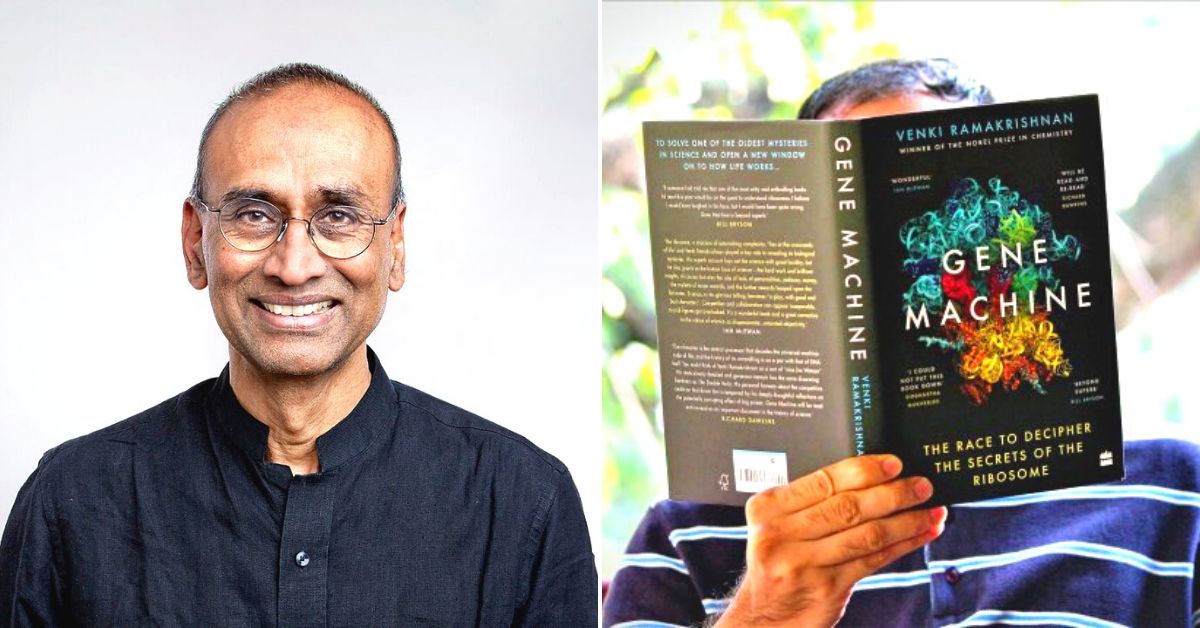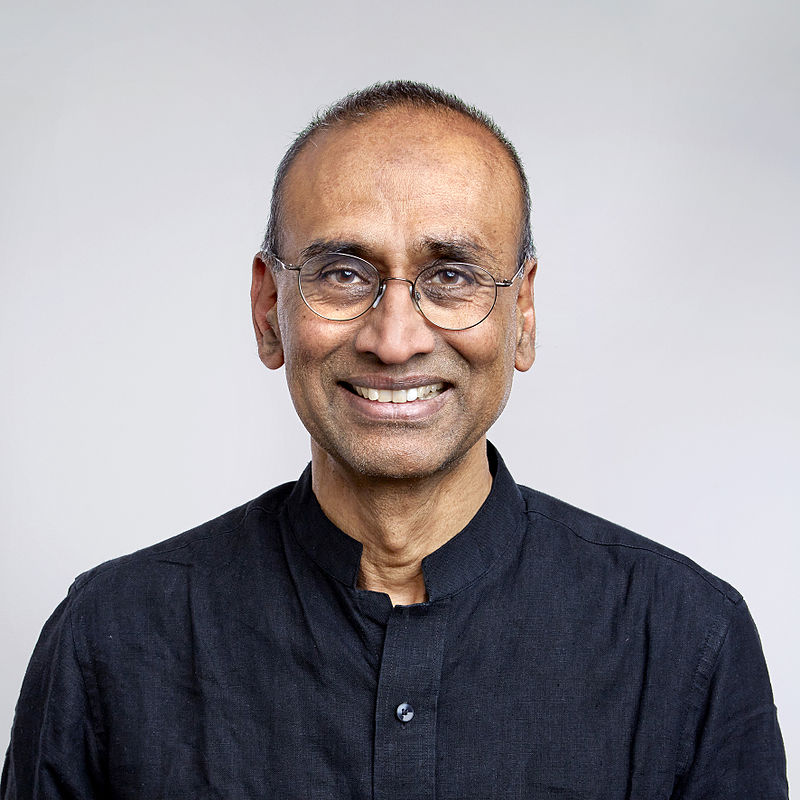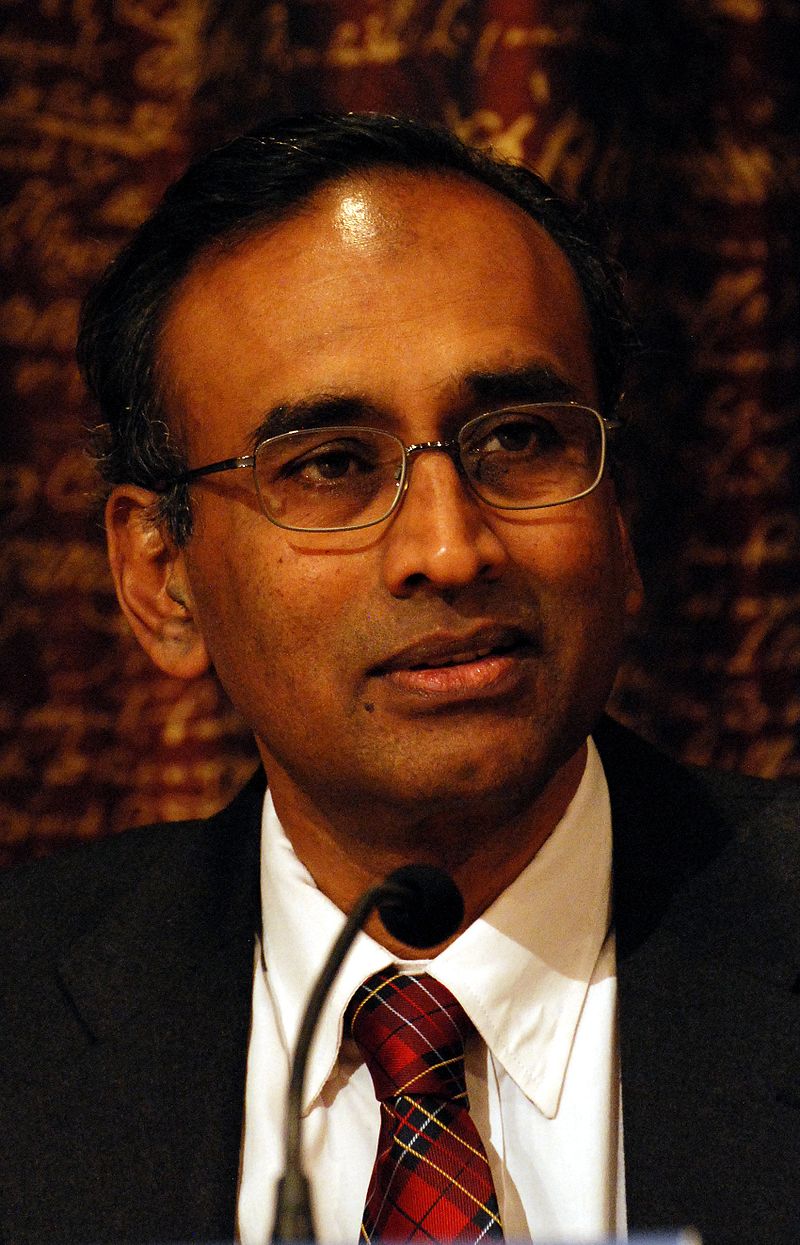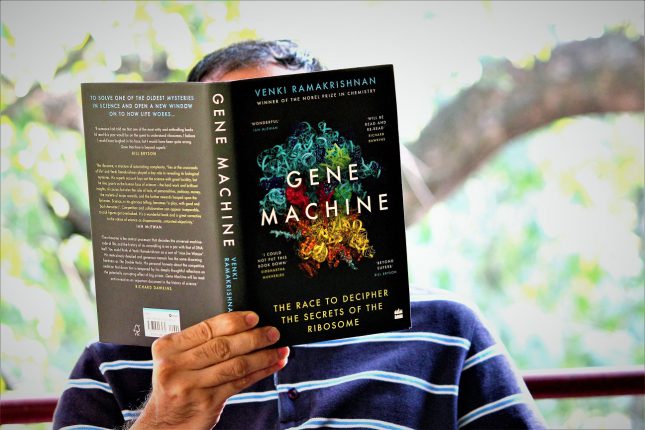‘Not the End of the World’: Nobel Laureate Who Failed to Get Into IIT
"Parents should not project their own insecurities and anxieties on their children. The children have enough anxiety as it is", says Nobel laureate 'Venki' Ramakrishnan.

Dr Venkataraman Ramakrishnan, the Indian-born scientist, won the Nobel Prize in Chemistry in 2009 for his many scientific contributions. But, did you know that before he went on his remarkable sojourn towards the Nobel Prize, he had failed to clear the entrance tests for both the IITs and the Christian Medical College in Vellore? Imagine that!
Ramakrishnan won the enviable Nobel Prize particularly for his remarkable work on the atomic structure of the ribosome. “As the site within living cells where the genetic information is read to synthesise proteins from amino acids, improved understanding of the ribosome has yielded many fundamental biological insights,” says a description by The Royal Society.

Early Life
Born in 1952 in the temple town of Chidambaram, Tamil Nadu, Dr Ramakrishnan grew up in a household of scholars. His father CV Ramakrishnan was a biochemist who would go onto head a new department of biochemistry at the Maharaja Sayajirao University of Baroda, while his mother R Rajalakshmi taught at Annamalai University in Chidambaram.
He was only three years old when his parents left the temple town for Vadodara, Gujarat.
“Unusually for an Indian man of his generation, my father, being aware of my mother’s intellectual abilities, encouraged her to go abroad by herself to obtain a Ph.D. She obtained a fellowship in McGill University to do a Ph.D. in psychology, where one of her mentors was the famous psychologist Donald Hebb, whose theories presaged modern ideas about synaptic plasticity as a basis for memory and behavior. Probably because she felt guilty about leaving my father and me behind, she finished her Ph.D. in under 18 months, which must be something of a record,” he writes, following his Nobel Prize win.
Although a bright student studying at a Convent school in Vadodara, he struggled through Classes VII to IX before a Science and Mathematics teacher called TC Patel reinvigorated his interest in academics. Despite his interest in humanities, studying subjects like English Literature was never an option because of the scientific environment that surrounded him at home. After a one-year preparatory course in Science at the Maharaja Sayajirao University of Baroda, the choices before him were medicine, engineering or basic science.

For many students in his time, there was a certain prestige attached to getting admissions into the IITs. But his parents didn’t put any pressure on him to get into these institutions.
“My parents were scientists. They didn’t particularly care about this, and in fact did not pay for me to go to any ‘coaching classes’ for the entrance exams, which were typical even then,” says Dr Ramakrishnan, in an email interview with The Better India.
Instead, his mother had nudged him towards the National Science Talent Search Scholarship established by the Government of India for students majoring in basic sciences.
“I don’t remember being particularly disappointed about not getting into the IITs or CMC. Around the same time, I was one of four people from my state (I believe I was the top-ranking in my state) for the National Science Talent Scholarship, which required you to do basic science, i.e. not for medicine or engineering. In some ways, I took this as a sign that it was where my talents were,” recalls Dr Ramakrishnan.
Instead, he chose to do his BSc in Physics at the Maharaja Sayajirao University of Baroda.

So, how did his time at the university in Vadodara shape his life and career?
“The university in those days was still a first-rate institution, famous for many things like its School of Fine Arts. The Physics department had a couple of faculty who had returned from abroad and had modernized the curriculum completely. Even before that, the mathematics department had modernised its curriculum. So by a fortunate accident, I received an excellent education,” he recalls.
Dr Ramakrishnan wasn’t even 19 when he finished his undergraduate studies, but as a high performing Science Talent Scholar, he could have been accepted into a Master’s programme anywhere in India. What students usually did back then was finish their Master’s in the same university before applying abroad for a PhD. Instead, he was offered a fellowship by Ohio University in the United States for his graduate studies. The rest, as they say, is history.
Also Read: Cracking the Puzzle of the ‘Mother of All Molecules’: A Conversation with Venki Ramakrishnan
With the Board Exam season well underway in most parts of India, Dr Ramakrishnan has some sage advice for both students of science and their parents.
“I would say that it is very good to try and get into the best institutions you can, but if you don’t get into your preferred ones, it is not the end of the world. You can get a good education at a lot of places. By taking a serious interest in your studies and really being interested in learning, it should be possible to succeed. Also, one should be flexible about career plans, so if one’s initial goals don’t work out, it is possible to try something else. Parents should not project their own insecurities and anxieties on their children. The children have enough anxiety as it is without making it worse with pressure from parents,” he writes.
At a time when the rat race for college admissions in India is at an all time high, when parents spend enormous amounts of money and put their children under tremendous pressure to get into elite institutions, here you have a Nobel Prize-winning biologist who found another way to succeed in life.
(Edited by Saiqua Sultan)
Like this story? Or have something to share? Write to us: [email protected], or connect with us on Facebook and Twitter.
If you found our stories insightful, informative, or even just enjoyable, we invite you to consider making a voluntary payment to support the work we do at The Better India. Your contribution helps us continue producing quality content that educates, inspires, and drives positive change.
Choose one of the payment options below for your contribution-
By paying for the stories you value, you directly contribute to sustaining our efforts focused on making a difference in the world. Together, let’s ensure that impactful stories continue to be told and shared, enriching lives and communities alike.
Thank you for your support. Here are some frequently asked questions you might find helpful to know why you are contributing?


This story made me
-
97
-
121
-
89
-
167











